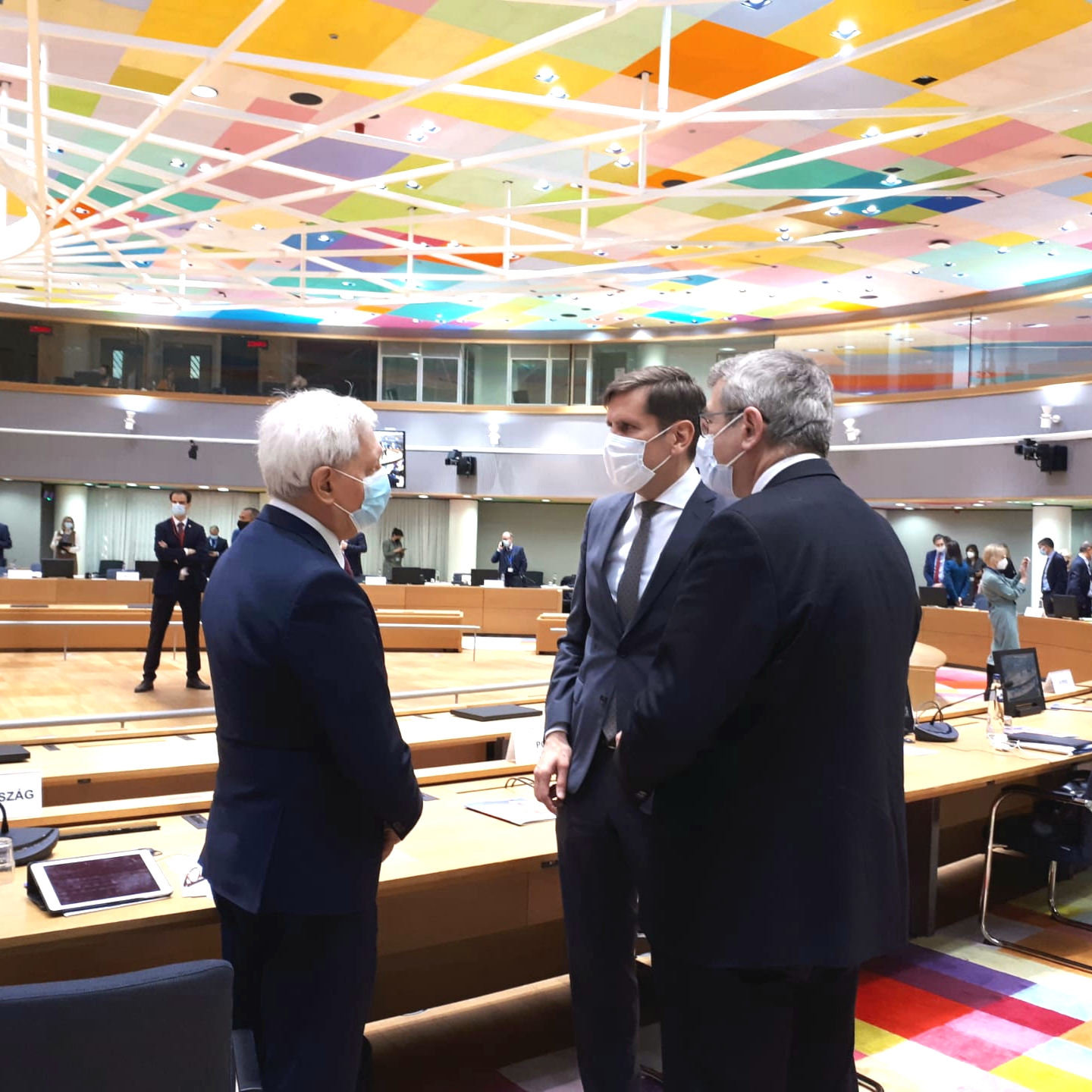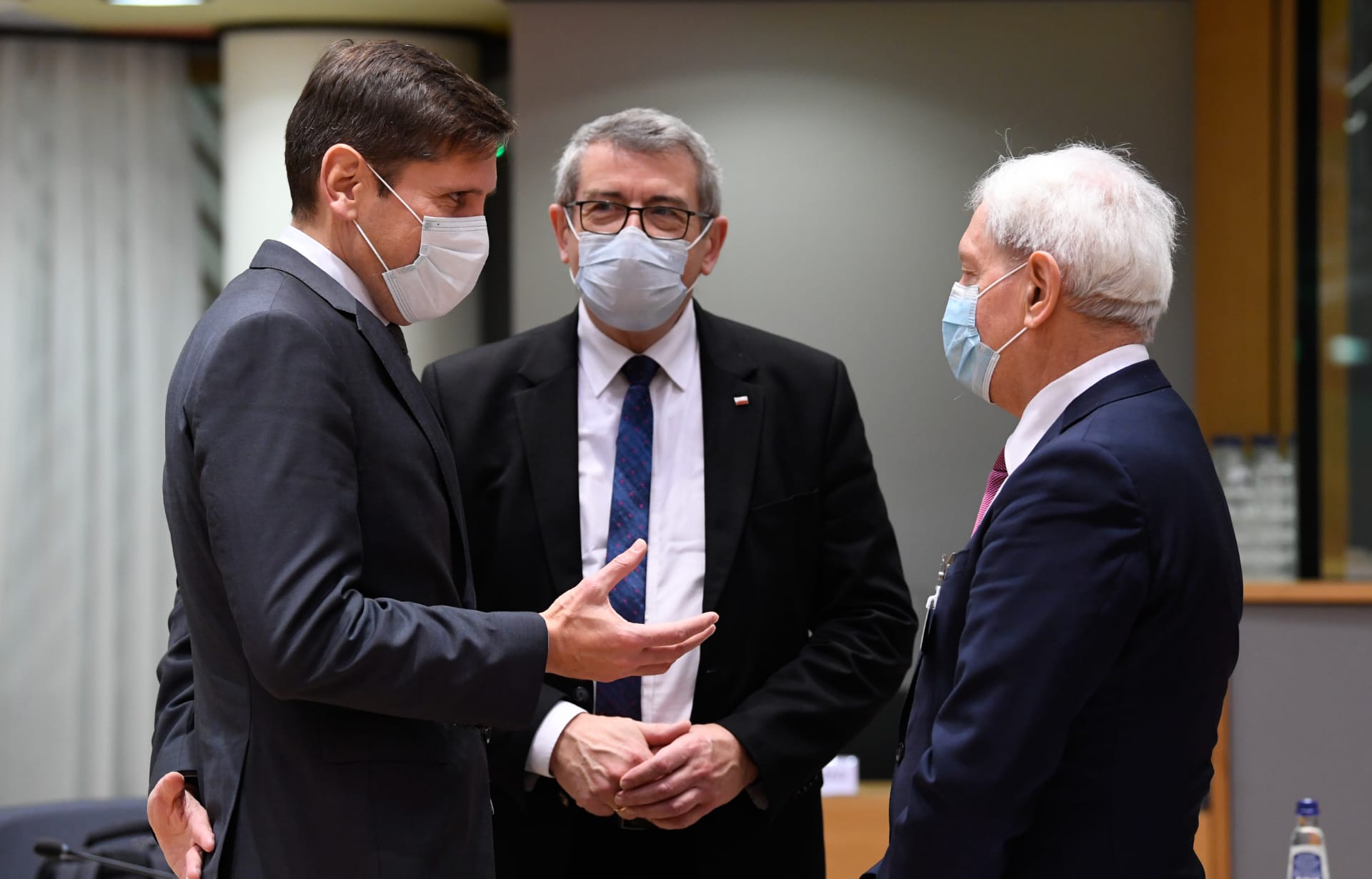The meeting of Ministers responsible for competitiveness (industry, single market, research and space) took place in Brussels on 25-26 November 2021, where Hungary was represented by László György, State Secretary for Economic Strategy and Regulation and József Bódis, State Secretary for Higher Education, Innovation and Vocational Education from the Ministry of Innovation and Technology.

On the first day, the ministers sealed the general approach on the Digital Markets Act and the Digital Services Act. These proposals could be real game changers in terms of the regulation of BigTech companies. The EU has a historic opportunity to guarantee freedom of expression and protection against very large online platforms’ abusive practices and to ensure fair and contestable markets that benefit all.
Subsequently, the ministers discussed the state of play as well as the challenges of the implementation of the Recovery Plan for Europe. State Secretary László György, while confirmed Hungary’s support for the European recovery and resilience efforts, he denounced the slow and controversial evaluation process of the Hungarian plan (which is still waiting for approval by the Commission). In order to start preparing the investments and reforms foreseen in our national plan, the government established a National Recovery Fund (to be financed from the national budget), he added.

On the second day of the Council meeting, research ministers agreed on two important pillars of the new European Research Area (ERA) by the approval of the Council Conclusions on the future governance of ERA and the Pact for Research and Innovation. The latter sets out the common values and principles of the ERA, including common priorities, investments, coordination and monitoring. The Council conclusions reaffirm the Council’s role as policy maker and recognize the central role of the ERA Forum, in the coordination of the implementation of the ERA.
The ministers exchanged views on the role of Research and Innovation (R&I) in the cross-sectoral objectives. They highlighted the pivotal role of R&I in solving complex societal challenges, requiring increased cross-sectorial coordination and synergies between various policy fields, basic research and innovation, industry’s and society’s needs. State Secretary Prof. Dr. Bódis stressed that the R&I policy does not only have a serving role, but it also has independent priorities and the proper strategic planning of Horizon Europe is very important. He highlighted that the governmental cooperation is also extremely important, because it allows Member States to plan the effective use and combination of different resources in the implementation of the green and digital transition. He underpinned that coordination at government level also allows Hungary to properly inform R&I actors.
The Council ended with a meeting of the Space Policy Section, where participants discussed the long-term sustainability, sustainable development and financing of the "New Space" and reaffirmed their commitment to supporting new emerging private sector players in the space sector.

